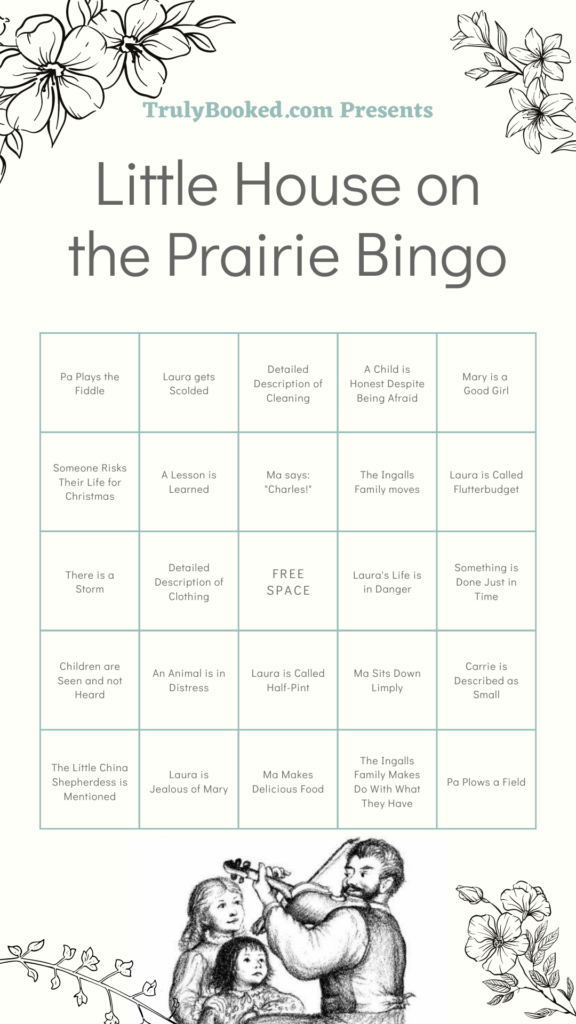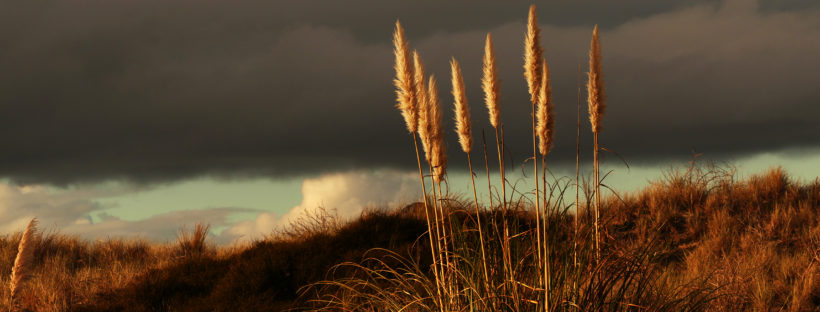I’m the first one to admit that I love the Little House series. Just the books, I’ve never seen the show, but despite them being children’s books, I’m captivated by the world they show. They are the original cottage-core phenomenon hundreds of years before it caught on. I reread them every few years on my own and even thought I might create Little House on the Prairie Bingo for my little sister to try. While I wouldn’t consider myself obsessed with these books, I’m definitely fascinated.
The Little House books combine ingenuity and beautifully detailed tableaus of life in the pioneer times. They were heavily edited in order to capture that wonderment even during its rougher moments. Who wouldn’t be caught up in the world that Laura Ingalls-Wilder so skillfully weaves?
Going back to the books feels like being a child again and growing up with Laura. As I get older I can appreciate how the books grow up with their main character and allow more of the awfulness in the world to seep in without removing the hopeful atmosphere of the books entirely. I even wrote a post about Little House books for adults to try and capture that atmosphere again.
As a marketer, I can appreciate people working to tell a good story and the Little House books are incredible at conveying its messages.
- Simpler times were better times.
- America is the greatest country in the world.
- Hard work and tenacity will overcome all hardships.
It’s a very libertarian message when it comes down to it. I wanted to go and reread the books with a critical eye and maybe play some Little House on the Prairie Bingo
Why Little House on the Prairie?
When I was younger I consumed these books as gospel and really bought into the mythos. While I’ve reread them as an adult with more nuanced views, I’ve never really pulled apart or studied them in a meaningful way. I’m hoping to add more meaning to the books as I read them and learn more about the pioneer era that created them. That means looking at the world through the books, through the rougher narrative that Laura Ingalls Wilder had originally written, and finding different perspectives to read through.
It’s no secret that these narratives are told from the perspective of the white settler, but there are hints of massacres and atrocities both committed by white settlers and by the indigenous population at the time. Ma and Pa are cryptic in this, leaving breadcrumb trails for us to follow, but I want to learn more about what’s happening during these times.
Beyond that, I want to see what it’s like to live that little house life. Does that mean I’m going to go become a homesteader and try to do things on my own? No. Not on your life, but I think I can try to do some small things to mimic their experience. Planting a garden and trying some of their recipes are the big ones that come to mind, so we’ll see how it goes.
At the end of the day, the reason I chose to do a deep dive on the little house books is because I love them. I love them, I love the (fantasy) world that they portray, and the industriousness of its characters. Will I still love them at the end of the deep dive? We’ll have to wait and see. I’m not sure how well the books will stand up to critical readings.
The Rules of the Deep Dive
This is my first deep dive, so the rules will be a little loose, but I want to have some in place just for guidance. It’s been over a decade now since I was in school and my ability to think critically about literature is probably a little rusty. It’s a perfect warm up since the books start off more simply and get harder as Laura grows up.
1. Read critically instead of just for pleasure
Reading critically doesn’t mean criticizing everything that I read. Instead it means analyzing and digging deeper into what’s being said instead of accepting it at first value. If Pa mentions a massacre somewhere in the book, I won’t just shrug my shoulders and accept it at face value. This time I’m going to look for the historical record of it. It means analyzing themes and looking for connective tissue. I’m hoping to deepen both my understanding and love for the books.
Does this mean I won’t enjoy them? Hell no. I’m going to love reading these books, I always do. It just means I shouldn’t let myself go on autopilot while reading them.
2. Take notes while reading in a notebook
Was there a word I didn’t know? Write it down. Did I need to do more research on a topic? I’ll write that down too. The idea is to create a repository of Little House knowledge both for me to look back on later, but also to help deepen my understanding. It’s like how taking notes while listening to a lecture can help you retain more than just listening to the lecture. I want to understand more about the context of the books.
3. Add reflections at the end of each chapter
This may be more difficult to do for earlier books than in later ones where there’s more going on, but I want to stop at the end of each chapter and think about what’s going on. Even if I just write a sentence about what’s being conveyed and what’s happening, I want to think back on the themes of each chapter and how they relate back to the book as a whole.
At the end of the book, I’ll add a reflection for the entire thing.
4. Supplemental research is a must
Since Little House is entirely from the viewpoint of a white settler, I want to expand and understand the overall history of the time. They keep pushing west and even mention how the indigenous lands will soon belong to them. What does this look like from the other side? I’ll keep a record of other perspectives that I look at and use them to deepen my understanding of the original Little House books.
5. Have fun with it
I’m not looking to go back to school or to stress myself out with notetaking. I’m very specifically not setting specific deadlines for this (although if I could get through all the books by the end of the year, I’d be very happy). I don’t just need to rely on written sources, I’ll go and look into history videos. Maybe I’ll start watching the Little House show. The possibilities are endless and I’m so excited to give it a try!
And since we’re going to have fun with this, why not challenge ourselves to a little bingo?
I’ve made this Little House on the Prairie Bingo card for the main books on the series.
Little House on the Prairie Bingo
Trying to spice up a reading? Maybe just wanting to have fun with your kids? Here is the Little House on the Prairie Bingo card for the Little House series. It won’t work for Farmer Boy unfortunately, but we’ll have to find an alternative for poor Almanzo.

Will you be reading along with me? Maybe you’re finding this post years down the line? Leave a comment and let’s read together~.
